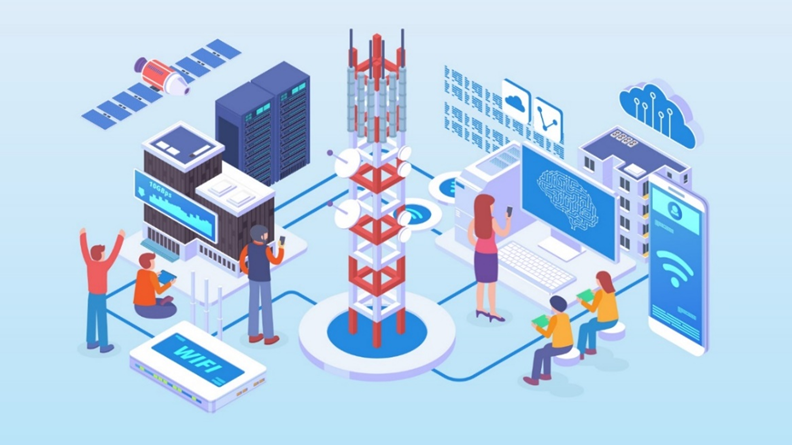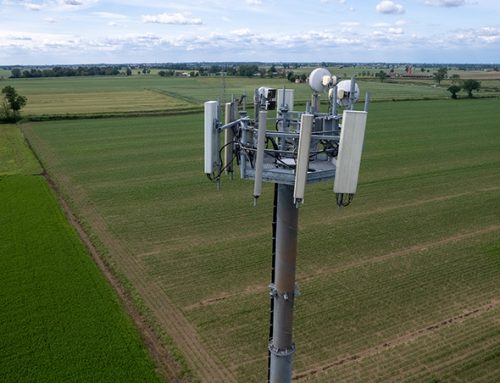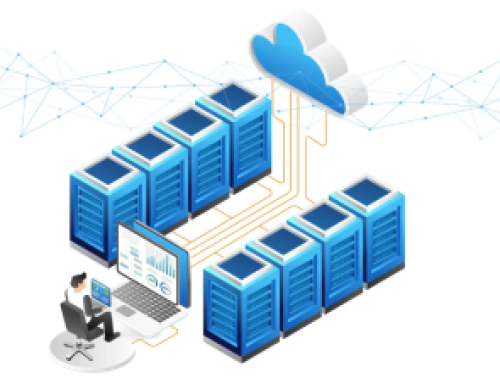The telecommunications industry is undergoing a significant transformation, driven by the emergence of new technologies such as 5G, ORAN, SDN and Cloud computing. These technologies offer new opportunities for telcos to enhance their customer experience, launch new products and optimise operations. However, the legacy technologies are still relevant and generating revenues though in a complex, and siloed landscape which are largely manual and reactive. To overcome these challenges, Telcos need to move from reactive to predictive to autonomous operations.
Let’s explore how Machine Learning and Generative AI models can play a significant role in addressing the concerns of Telcos, challenges in adoption and how to mitigate them.
Legacy telecom landscape: a Multi-Tech Multi-Vendor Ecosystem
The legacy Telecom landscape is complex owing to its multi-technology, multi-vendor heterogenous nature, with proprietary hardware centric technology resulting in Telecom Operations being siloed which results in
- Multiple/Heterogenous Management Panes
- Lack of End-to-end Network Visibility
- Highly Manual
- Slow to Change / Provision
In this landscape, the Telecom Operations are largely manual. The number of rule-based alarms are huge, with equally huge false positives, leading to delays and significant amount of manual effort to assess the impact to the network. Ineffective cross-domain correlation leads to delays and consequently affects the customer experience. Traditional rule-based automation investments by the Telcos are not yielding the desired ROI.
Heroes of the Future: Data Analytics & AI based Automation
While Telecom technology matures to a fully Digital Native phenomenon, Telcos need to progressively adopt Data Analytics and AI based Automation, an approach which is technology, domain, and vendor agnostic. AI/ML techniques are used to correlate root causes based on historical and real-time Data from heterogenous sources. Self-learning models, round-trip/close-loop automations can take the Telecom operations from largely manual and reactive to predictive to Autonomous Operations.
Generative AI models can play a significant role in addressing the challenges faced by telcos. By analysing large amounts of data in real-time, identifying patterns, and providing insights, AI can be used to proactively prevent issues before they arise. In addition it can enable :
- An intelligent chatbot for customer service
- Train employees on new technologies
- Assist with network planning and optimization
- Autonomous troubleshooting
- Self-healing networks
In our own experience of working with Telcos globally, we have seen significant benefits in introducing AI based solutions. For e.g., we were able to achieve following benefits for a Telco in Enterprise NOC operations:
- ~700-man-hours saved per month
- 60% – reduction in handling time
- 100% – accuracy of reporting
- 80% – efficiency enhancement
Another example is where improvement in the service assurance processes was achieved for Tier1 Operator by implementing AI/ML based operations. It helped them enhance operational efficiency, service quality, and scalability and thus achieved:
- 15%-19%improvement in SLA performance
- 15% reduction in early life failures
- 10%-15% OPEX improvement
We strongly believe with the adoption of AI/ML based operations, telcos can gain valuable insights into their processes, identify areas for optimisation, and make more relevant decisions to deliver enhanced customer experience and business goals. In addition they can identify new market opportunities, predict customer behavior, and optimize marketing campaigns.
Risks, Challenges and mitigation while adopting Autonomous Operations
However, there are also potential risks and challenges associated with autonomous operations that need to be addressed. One of the main concerns is the potential for AI Hallucination where AI-based systems make errors or unintended decisions. Proper training and testing of the AI systems, as well as the use of human oversight and intervention, when necessary, can mitigate this risk. Another challenge is the need for a skilled workforce to manage and maintain the autonomous operations. Telcos need to invest in training their employees on new technologies and processes to ensure that they are equipped with the necessary skills to manage and maintain the autonomous systems.
Conclusion
The telecommunications industry is going through a significant transformation towards autonomous operations, and telcos need to embrace intelligent automation, data analytics, and AI-based automation to remain competitive. While there are potential risks and challenges associated with autonomous operations, they can be mitigated through proper training and testing of AI systems and the use of human oversight and intervention when necessary. The benefits of autonomous operations far outweigh the potential risks, and telcos that adopt this transformation will be better positioned to provide faster, more efficient service to their customers while reducing costs and improving service quality.
What ways do you think AI and Automation can impact your telecom operations. Do share your inputs and thoughts at tcts.marketing@tatacommunications.com























![Telco Cloud: A Key Enabler to Telco Transformation [Part 1]](https://www.tatacommunications-ts.com/wp-content/uploads/2023/06/Telco-Cloud-blog_image-1-500x383.png)







